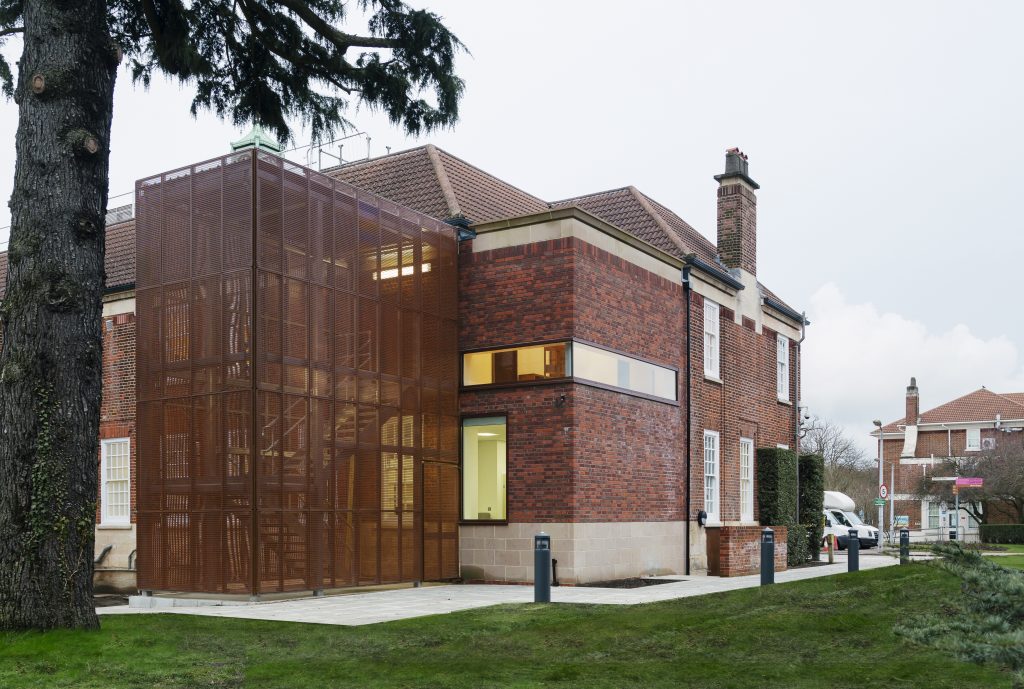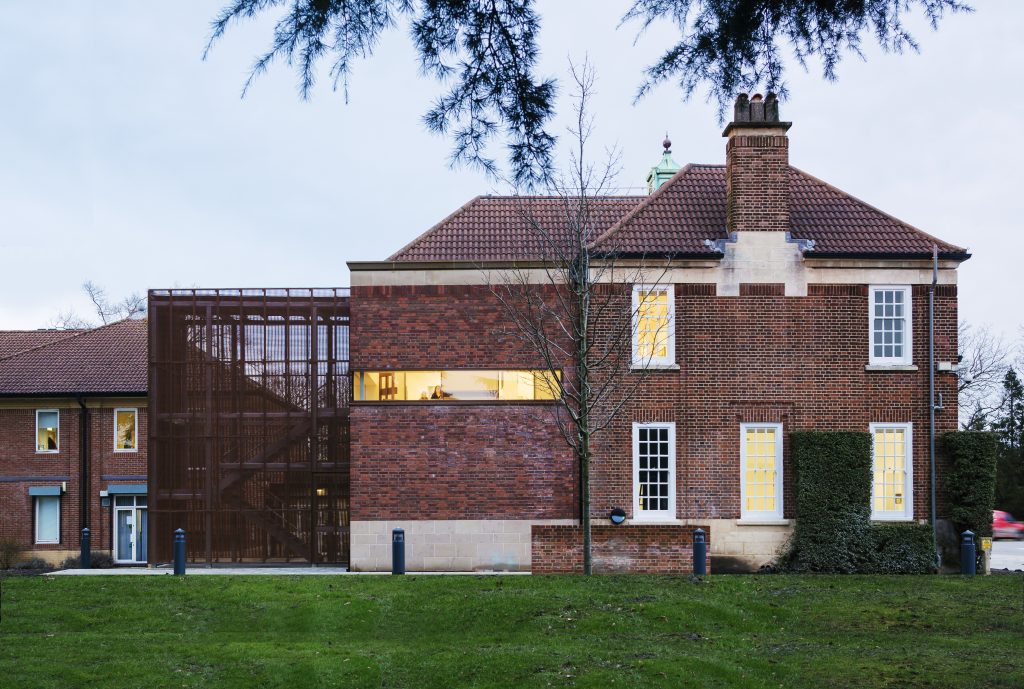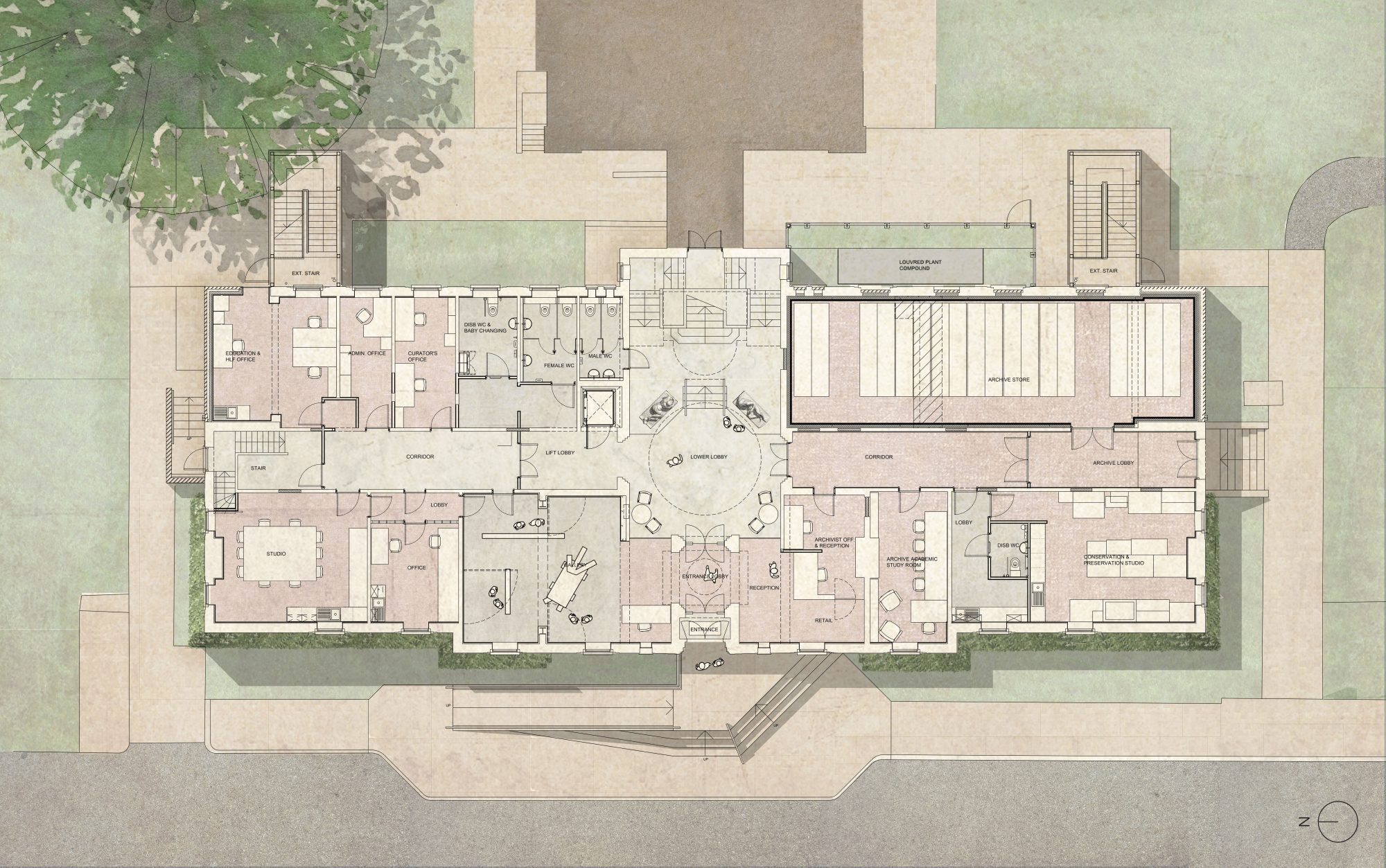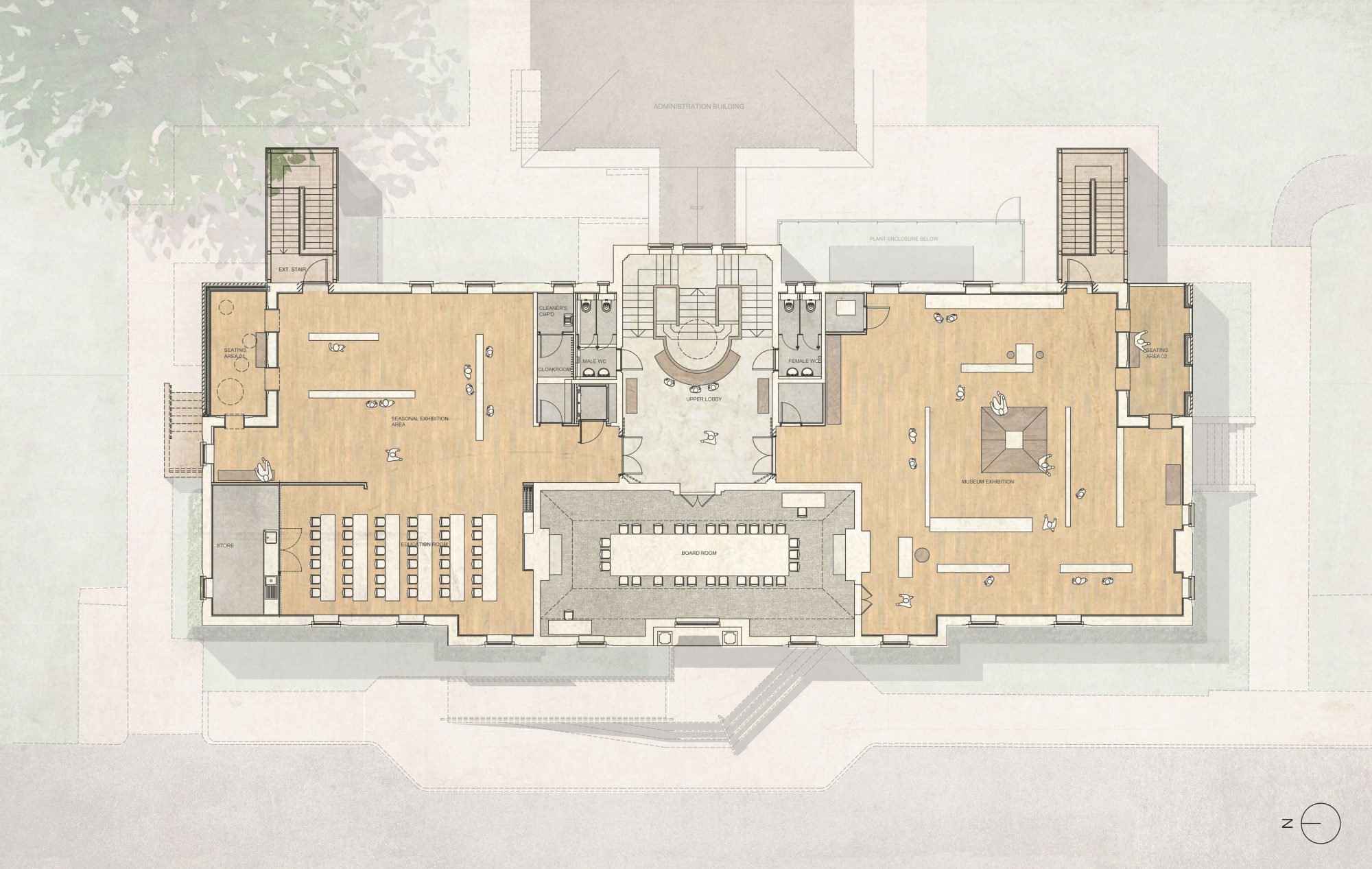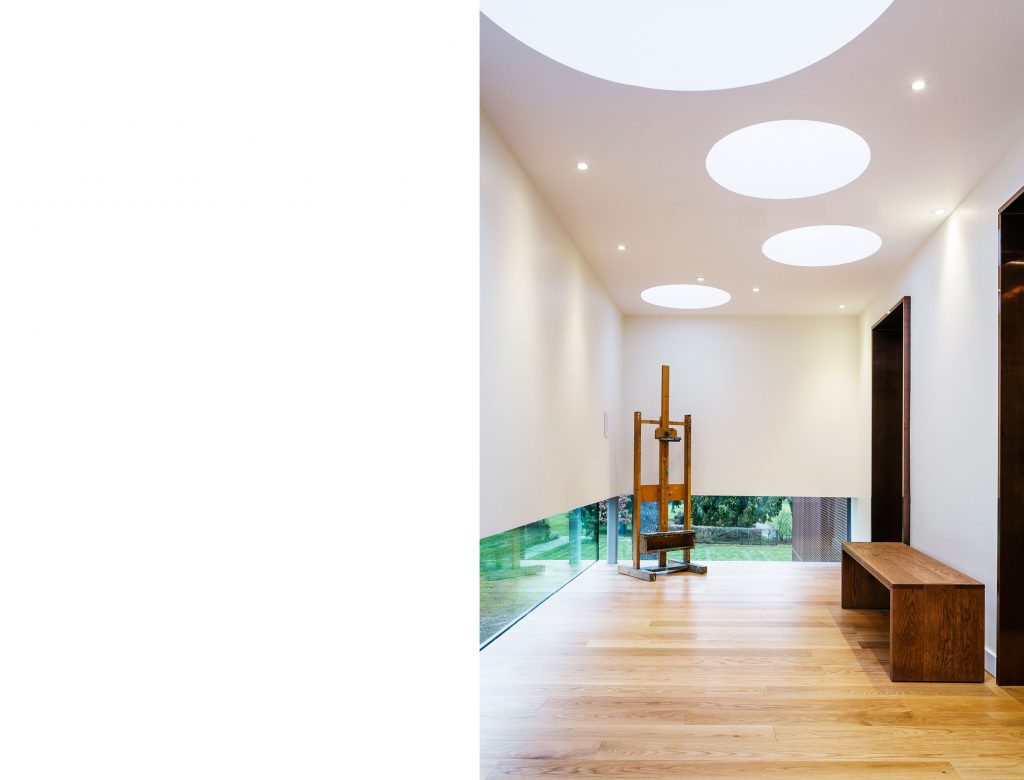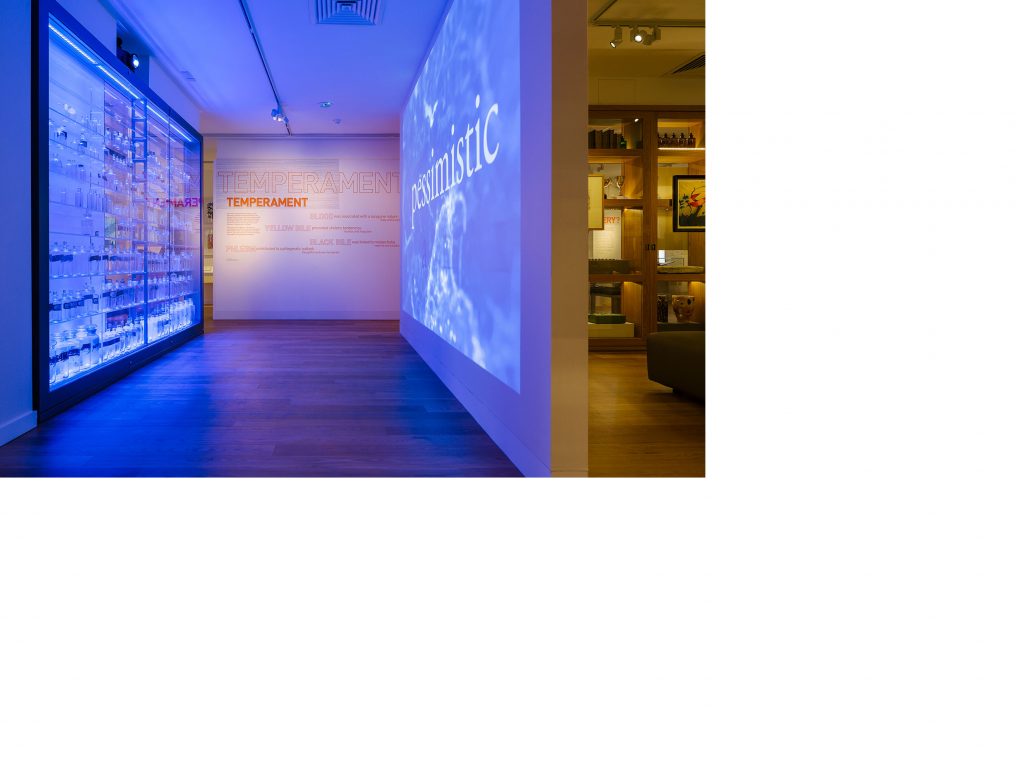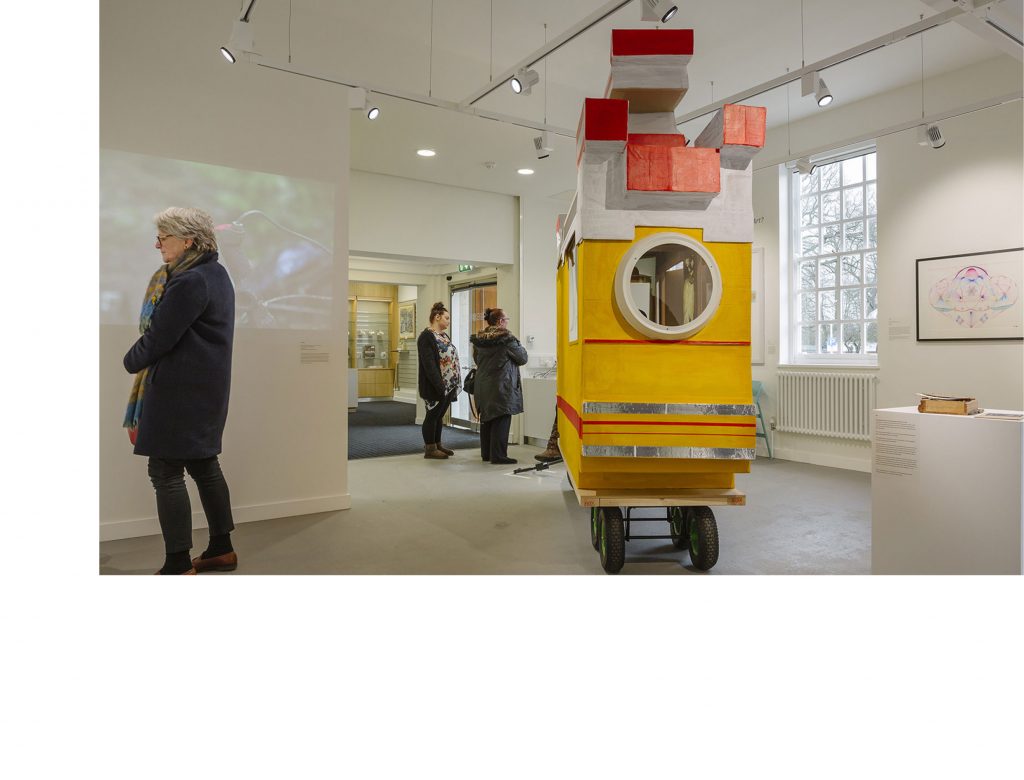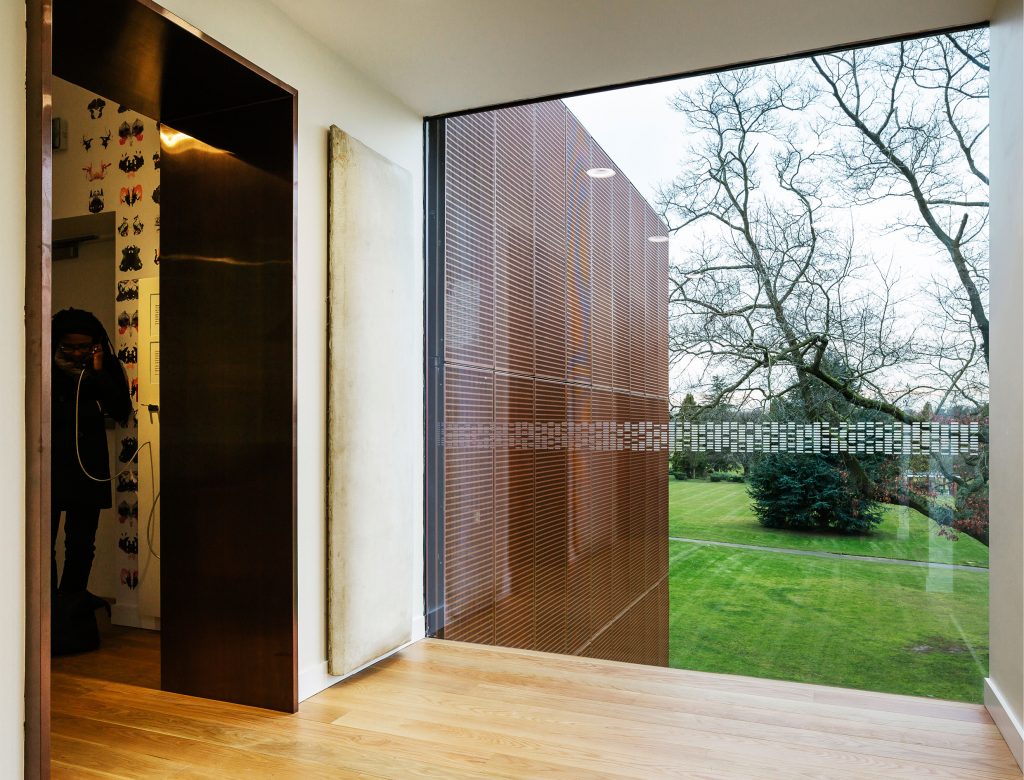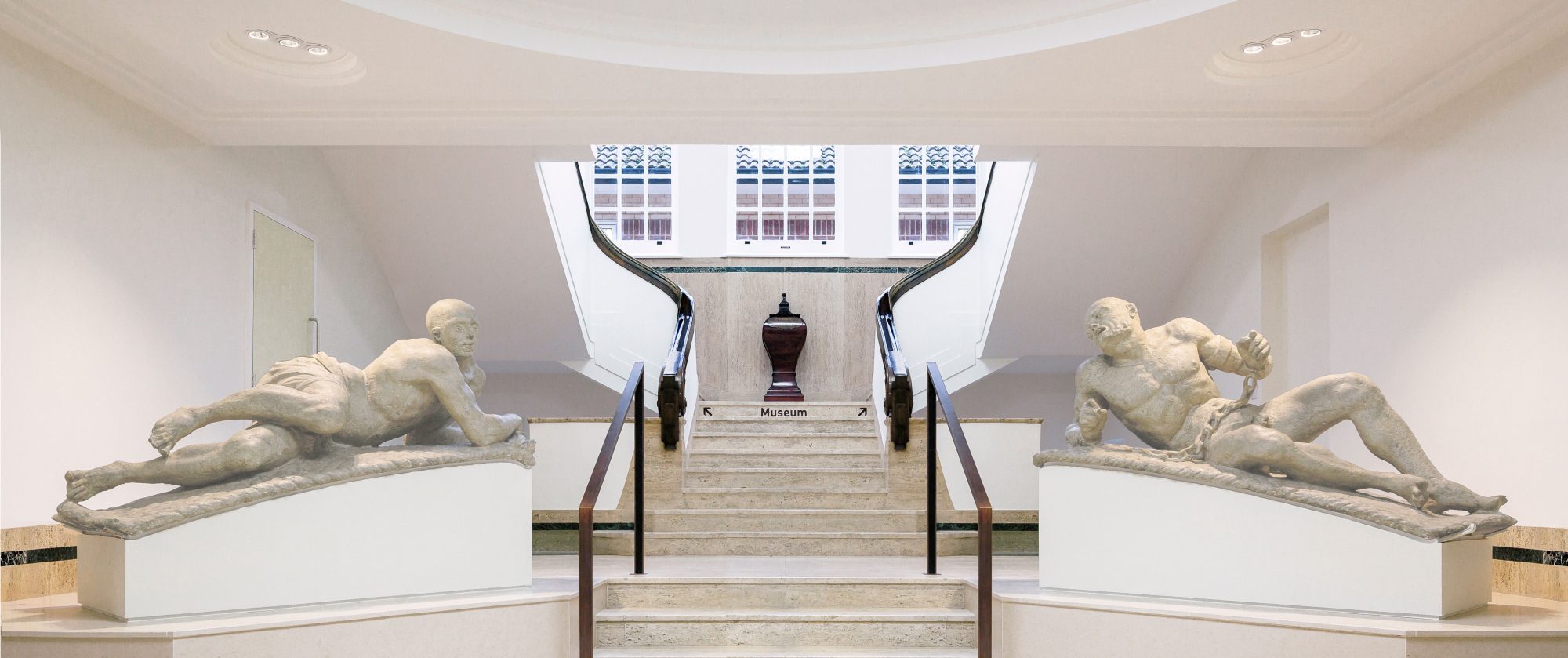

FBM was selected following an invited design competition run by the South London and Maudsley NHS Trust. This small but unique venue is the only building dedicated to the history of mental health treatment in the UK; the ‘Museum of the Mind’ contains the archive of the hospital which became known as ‘Bedlam’. The project involved a refurbishment and extension of the former Administration Building and opened in February 2015. The scheme was a finalist in the Art Fund Museum of the Year Awards
Bethlem is one of the world’s oldest hospitals for the treatment of mental illness. The Bethlem Archives and Museum Service was established at the hospital as a small exhibition space in 1970 and now houses over 450 works of art by artists linked to the hospital or the field of mental illness; it includes pieces by Richard Dadd and Louis Wain who both spent time at Bethlem. The archive contains a continuous record of the hospital since 1559, including fragile and valuable records.
The refurbishment and extension of the former Administration Building now provide environmentally controlled archive storage, a conservation studio, dedicated spaces to accommodate archive researchers and educational visits, galleries for permanent and temporary exhibitions. The focal point of the new museum is the permanent display which explores the long history of mental health care and treatment at Bethlem and elsewhere.
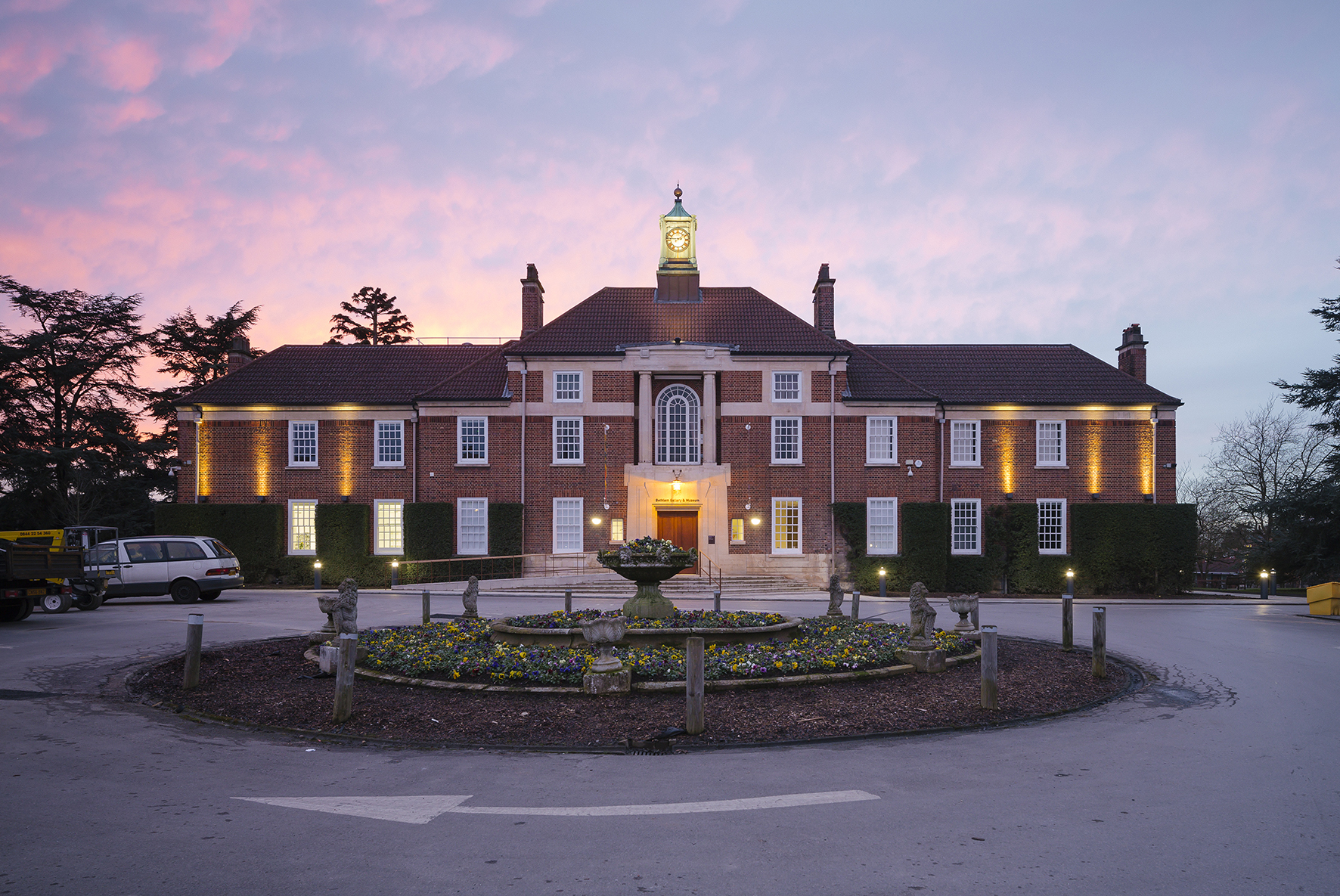
Key to the design was ensuring the building played a significant role in shaping visitor experience and to emphasise its unique position as part of the working hospital. The symmetrical arrangement of the existing building inspired a ‘winged’ layout, maintaining the dramatic central circulation space, Art Deco reception area and staircase. The journey through the museum commences in the foyer where visitors are greeted by life-size statues depicting ‘Raving’ and ‘Melancholy Madness,’ originally located at the gates of the 17th century hospital. Upstairs, the South Wing extension is envisaged as a darker space, inspired by Hogarth’s etchings of Bedlam. The North Wing extension is a lighter space, where full height glazing directs views across the landscaped gardens. Outwardly, the building retains its attractive facade, enhanced by FBM’s contemporary extension that complements the existing building proportions and utilises an elegant material palette – including brick, limestone, marble, perforated aluminium, bronze and copper.
Post completion monitoring was an essential requirement of the project to ensure optimum conditions for the storage of sensitive art and artefacts was maintained as well as internal comfort for staff and visitors. The environment is being continually monitored using data loggers to ensure optimum conditions for the storage and display of art and artefacts.
The museum and gallery are used by patients at the hospital as part of Art Therapy, as well as host visits by academics, schools and research students. To encourage social inclusion, the Museum offers a wide range of opportunities, such as expenses paid volunteering for people with (lived) experience of mental health problems, informal learning opportunities and regular mornings for mothers with children in the mother and baby unit.
The resulting scheme has gained a positive reaction from visitors and staff, comments written in the Museum’s visitor book published in the 2016 Impact report reflect this:
“A really thoughtful, well considered and beautiful space, and such a valuable space for visitors to the hospital.”
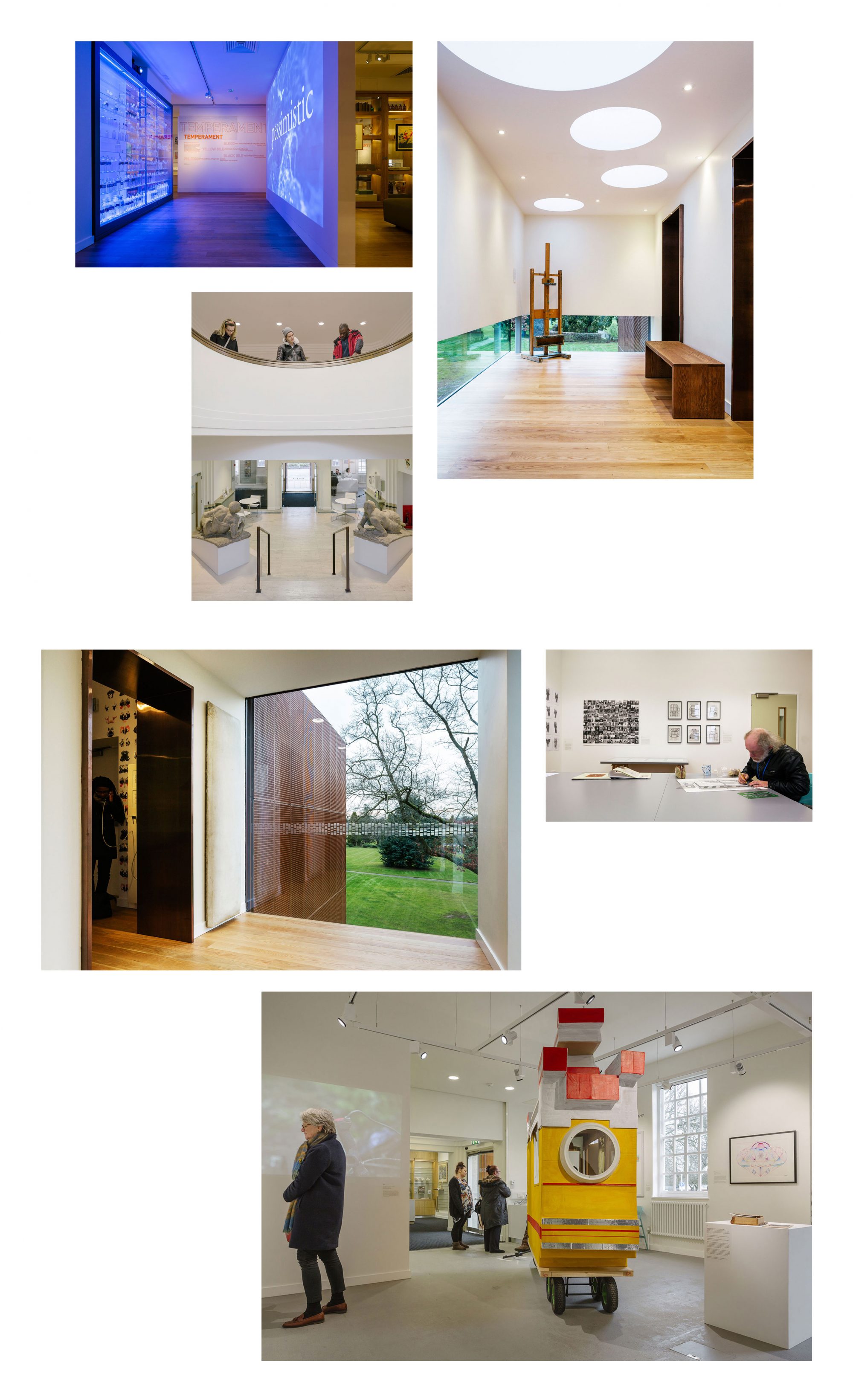
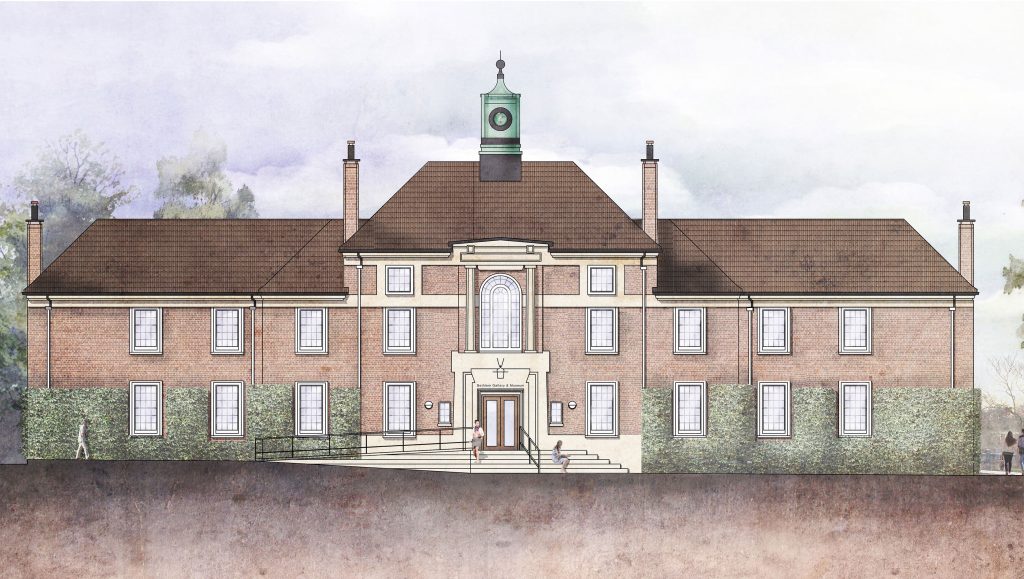
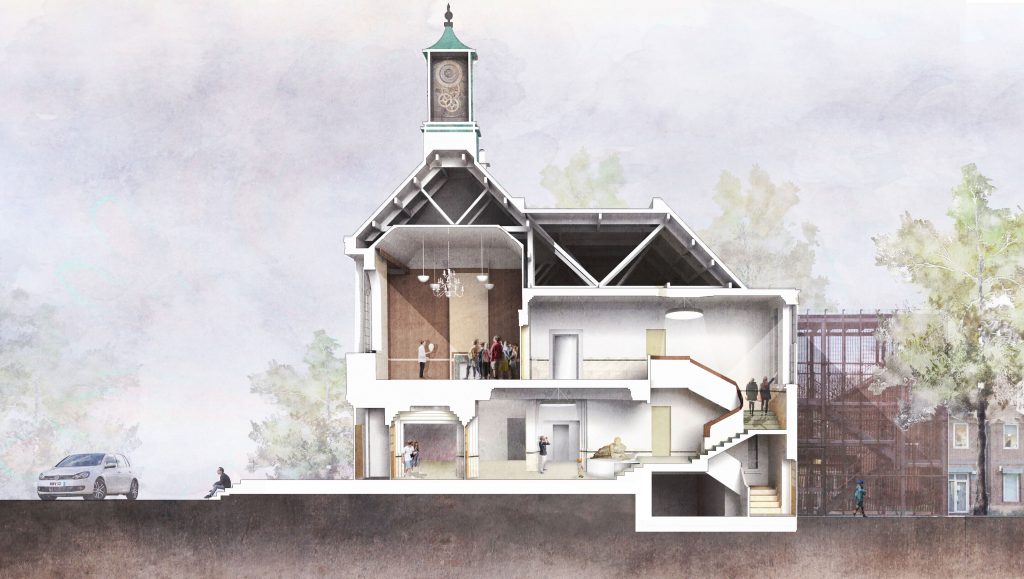
Since the renovation, the Museum has been able to expand its programme of temporary exhibitions and events. Victoria Northwood, Head of Archives and Museum at the time, stated:
“The move to new facilities has been transformative, enabling us to publicise our collections more widely and welcome an increased number of visitors.”
Kirsty Giles, Manager of SLaM Recovery College writes:
‘The partnership with Bethlem Museum of the Mind has enabled the college to utilise a high-quality training venue which is easily accessible to students based on the hospital site or in the local community … SLaM Recovery College has been able to support the provision of mental health focused education to complement the range of activities within the museum, whilst providing our students with the opportunity to learn within an environment which encourages them to explore the history of mental healthcare and treatment.’
